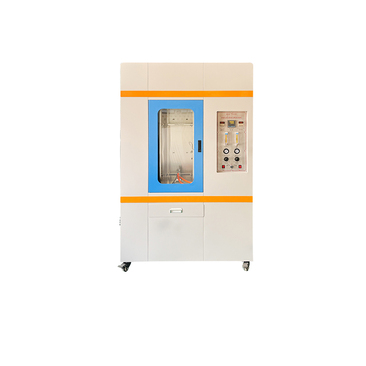Suppliers of Tensile Testers for Measuring Break Strength in Various Materials and Applications
Understanding Tensile Testers for Break Strength A Guide for Suppliers
In today's competitive manufacturing landscape, the ability to accurately measure the break strength of materials is essential to ensure product quality and safety. Tensile testers play a crucial role in conducting these measurements, providing suppliers with valuable data to maintain compliance with industry standards. This article delves into the importance of tensile testers for break strength, exploring the types available, their applications, and factors to consider when selecting a supplier.
What is a Tensile Tester?
A tensile tester, also known as a universal testing machine (UTM), is a device used to measure the tensile strength of materials. It applies a controlled tensile force to a specimen until it fails, thus providing critical information about the material's mechanical properties. Key measurements obtained from tensile tests include tensile strength, yield strength, elongation, and reduction of area. These parameters are vital for various industries, including polymers, metals, textiles, and composites.
Importance of Break Strength Testing
Break strength testing is essential for several reasons
1. Quality Control Suppliers must ensure that the materials they provide meet stringent quality standards. Tensile testing helps identify any weaknesses in the material that could affect the final product's performance.
2. Material Development For R&D purposes, understanding the tensile properties of new materials enables manufacturers to refine formulations and improve product offerings.
3. Regulatory Compliance Many industries require compliance with specific standards (e.g., ASTM, ISO) that mandate regular testing of materials for break strength. Adhering to these standards mitigates risks and enhances marketability.
4. Safety Assurance In sectors such as automotive and aerospace, failure of materials can lead to catastrophic consequences. Regular tensile testing helps ensure that materials can withstand operational stresses.
Types of Tensile Testers
There are various types of tensile testers, each designed for different applications
tensile tester for break strength suppliers

- Electromechanical Testers These are commonly used in laboratories for their precision and ability to measure small-scale samples. They are excellent for testing materials like plastics and thin metals.
- Hydraulic Testers Suitable for larger samples and more robust materials, hydraulic testers provide higher force capabilities and are often used in industrial settings.
- Portable Testers Ideal for on-site testing, portable tensile testers allow for quick assessments of materials without the need for extensive lab setups.
Choosing the Right Supplier
When selecting a supplier for tensile testers, several factors should be considered
1. Quality and Reliability Look for suppliers with a proven track record and positive reviews concerning the accuracy and reliability of their equipment.
2. Technical Support Suppliers should offer comprehensive technical support, including installation, calibration, and maintenance services.
3. Customization Different industries have varying requirements. Suppliers who can offer tailored solutions or accessories will likely be more advantageous.
4. Certifications and Standards Ensure that the supplier adheres to international testing standards and provides equipment with necessary certifications.
5. Cost and Value While initial cost is an important factor, consider the overall value the machine will offer, including longevity, maintenance costs, and the reliability of test results.
Conclusion
Tensile testers for break strength are an indispensable tool for suppliers aiming to deliver high-quality materials that meet industry standards. By understanding the different types of testers available and the importance of break strength testing, suppliers can make informed decisions when selecting equipment. A focus on quality, reliability, and value will ensure that businesses not only comply with regulations but also contribute to safer and more effective products in the market. As material sciences evolve, investing in the right tensile testing solutions will be paramount in staying ahead of the competition.
-
Why the Conductor Resistance Constant Temperature Measurement Machine Redefines Precision
NewsJun.20,2025
-
Reliable Testing Starts Here: Why the High Insulation Resistance Measuring Instrument Is a Must-Have
NewsJun.20,2025
-
Flexible Cable Flexing Test Equipment: The Precision Standard for Cable Durability and Performance Testing
NewsJun.20,2025
-
Digital Measurement Projector: Precision Visualization for Modern Manufacturing
NewsJun.20,2025
-
Computer Control Electronic Tensile Tester: Precision and Power for the Modern Metal Industry
NewsJun.20,2025
-
Cable Spark Tester: Your Ultimate Insulation Assurance for Wire and Cable Testing
NewsJun.20,2025
 Copyright © 2025 Hebei Fangyuan Instrument & Equipment Co.,Ltd. All Rights Reserved. Sitemap | Privacy Policy
Copyright © 2025 Hebei Fangyuan Instrument & Equipment Co.,Ltd. All Rights Reserved. Sitemap | Privacy Policy
